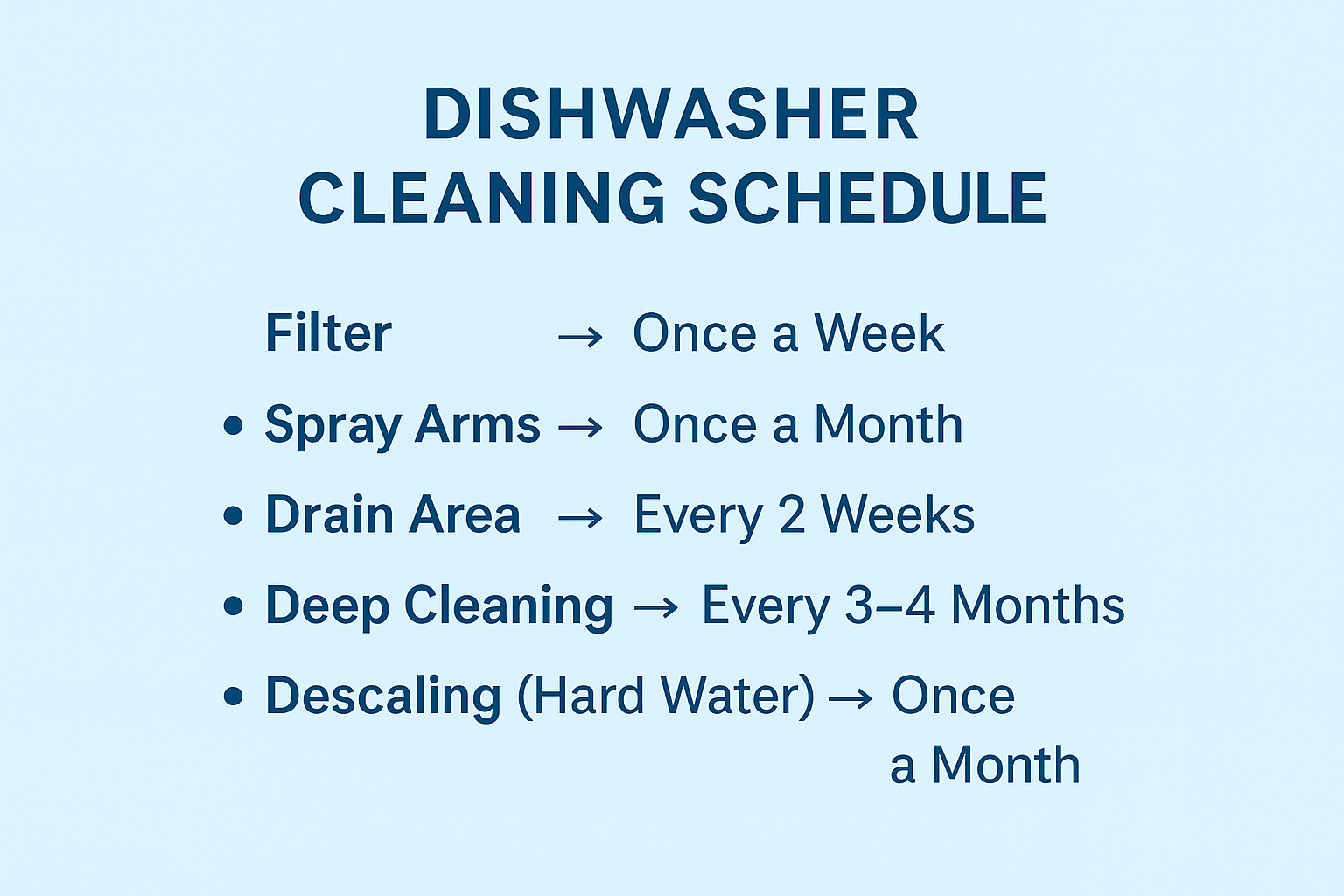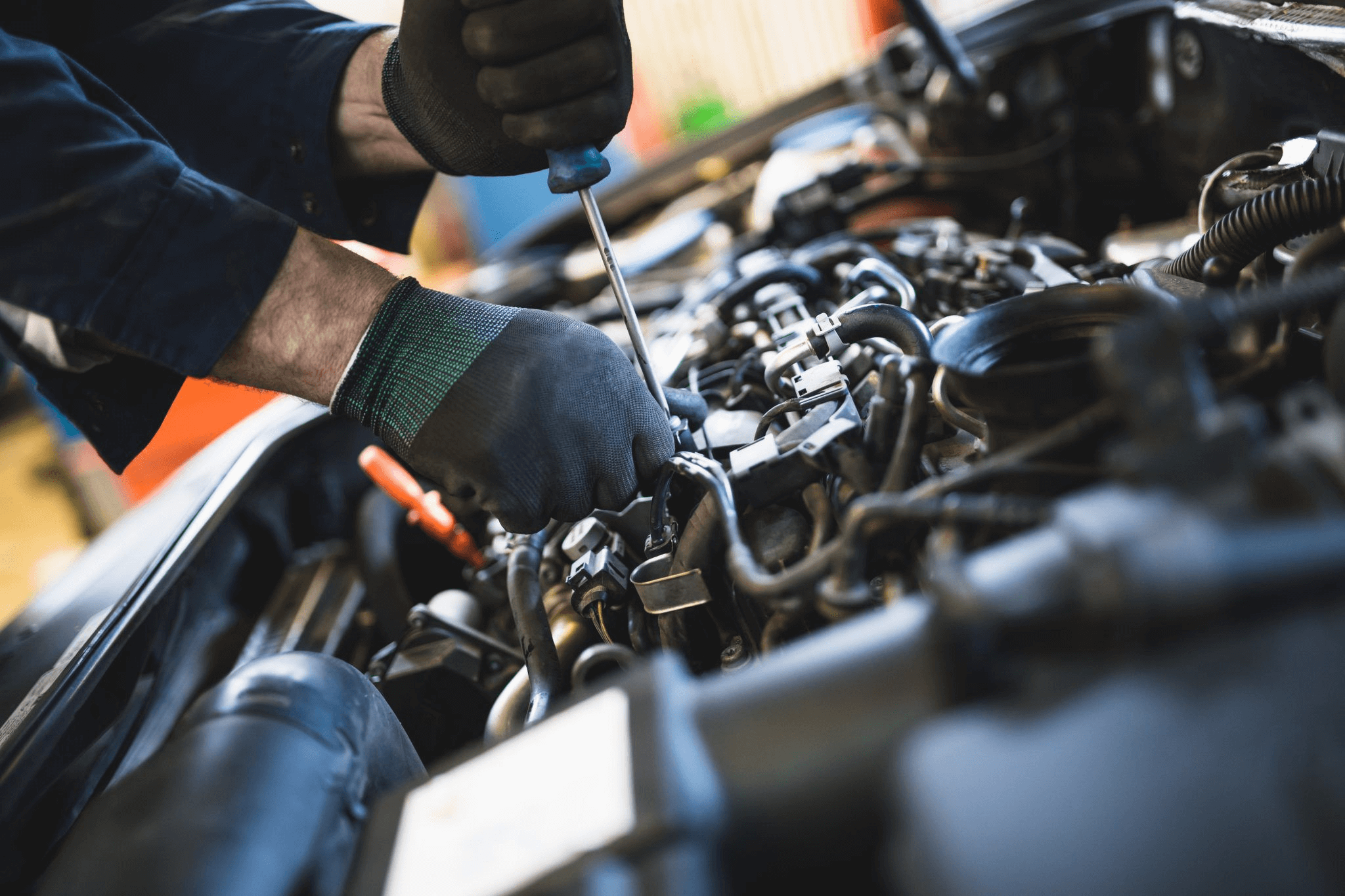How Often Should You Clean Your Dishwasher
A dishwasher is one of the most helpful appliances in any home, saving time and water while keeping your dishes clean. However, many people forget that the dishwasher itself also needs cleaning. When dirt, grease, soap residue, and food particles collect inside, your appliance becomes less effective. Knowing how often you should clean your dishwasher helps maintain good performance and prevents problems like odor, blockage, and noise. Regular cleaning also helps extend the appliance’s lifespan and ensures better washing results.
Cleaning a dishwasher may seem unnecessary since it handles soap and water every day. But in reality, the machine collects hidden buildup that affects how well it works. Understanding how often you should clean your dishwasher is important for keeping it in good condition and making sure it runs smoothly throughout the year.
Why Cleaning Your Dishwasher Matters
A dishwasher goes through many wash cycles every week, especially in busy homes. Each cycle pushes water, soap, and food particles through various internal parts. Over time, this buildup starts affecting the machine’s performance. When you clean the dishwasher regularly, you help the machine work with less pressure and strain.
A clean dishwasher also improves hygiene. Food residue stuck in the filter or spray arms can develop bacteria and bad smells. Grease buildup inside the machine can reduce water flow and keep dishes from being washed properly. By cleaning on time, you remove all unwanted buildup and ensure clean, fresh results after every wash.
Types of Cleaning Your Dishwasher Needs
A dishwasher requires different types of cleaning depending on how much it is used. Some parts require weekly attention, while others need monthly or deep cleaning every three to four months. If your home uses hard water, cleaning becomes more important because minerals like calcium and magnesium settle inside the machine.
Also check this : Dishwasher Repair in Motor City
Weekly cleaning includes removing food particles from the filter and wiping the door edges. Monthly cleaning usually involves descaling, checking the spray arms, and cleaning the drain area. Deep cleaning includes cleaning hidden parts, heating elements, and internal buildup. When these cleaning habits become routine, the dishwasher works more efficiently.
How Often You Should Clean the Filter
The filter is one of the most important parts of the dishwasher. Its function is to trap food particles that come off dishes during the wash cycle. When the filter becomes full, water cannot move smoothly through the machine. This causes poor cleaning, odor, and sometimes strange noises.
Dishwasher filters should ideally be cleaned once a week. If your dishwasher is used multiple times each day, cleaning the filter twice a week helps prevent buildup. A clean filter keeps the dishwasher running with better pressure and helps avoid unnecessary repairs later.
How Often You Should Clean the Spray Arms
The spray arms push water throughout the dishwasher. They contain small holes that allow strong water pressure to reach the dishes. When these holes become blocked with grease, minerals, or food particles, the dishwasher cannot clean properly.
Spray arms should be cleaned once a month. This prevents water from spraying unevenly and ensures that all dishes receive proper cleaning. In areas with hard water, it may be necessary to clean them every two weeks to avoid mineral buildup.
Cleaning the spray arms also helps reduce noise. Blocked spray arms force the pump to work harder, making the machine louder. Keeping them clear ensures smoother, quieter operation.
How Often You Should Clean the Drain Area
The drain area is responsible for removing dirty water at the end of each cycle. When the drain becomes blocked, water collects inside the machine and produces gurgling or vibrating noises. A blocked drain can also lead to bad odor and slow draining.
It is recommended to clean the drain area once every two weeks. This helps remove food particles and protects the drain pump from pressure and damage. With a clean drain, the dishwasher empties water faster and prevents buildup that affects performance.
How Often You Should Deep Clean the Dishwasher
A deep clean is necessary every three to four months. This type of cleaning removes hidden dirt, soap residue, and hard water deposits from inside the machine. Deep cleaning also targets parts that regular cleaning may miss, such as the heating element, inner walls, and seals.
Deep cleaning also helps prevent mold or mildew buildup, especially in humid regions like Dubai. When you deep clean the dishwasher regularly, you ensure long-lasting performance and reduce the chance of costly repairs.
Signs Your Dishwasher Needs Cleaning Immediately
Sometimes your dishwasher gives signs that it needs cleaning sooner than expected. These signs include bad smell, dirty dishes even after a full wash cycle, water collecting at the bottom, unusual noises, and visible residue inside the machine. When these problems appear, it means that dirt and grease have already built up.
Ignoring these signs may lead to bigger issues like pump failure or clogged spray arms. Cleaning the dishwasher on time prevents these problems and keeps the machine working with consistent quality.
The Role of Hard Water in Dishwasher Cleaning
Hard water is very common in Dubai and can affect dishwashers regularly. Minerals in the water leave white deposits on spray arms, heating elements, and internal parts. This buildup can reduce water flow and washing power. If you live in an area with hard water, you need to clean the dishwasher more often.
Using a rinse aid and running a descaling cycle once a month helps reduce mineral deposits. This improves cleaning efficiency and prevents noise caused by blocked components.
How Cleaning Frequency Affects Dishwasher Lifespan
A dishwasher that is cleaned regularly lasts longer because its parts face less strain. Filters, pumps, and spray arms work better when they are free from buildup. Regular cleaning also prevents sudden breakdowns, leaks, and overheating. When your dishwasher is maintained well, it runs smoothly and remains energy efficient.
Homeowners who take care of their appliance experience fewer repairs and enjoy quieter operation. Cleaning the dishwasher regularly is one of the simplest ways to keep the appliance healthy.
When Cleaning Is Not Enough
Sometimes cleaning the dishwasher does not solve the issue. If the machine continues to make noise, fails to drain, or leaves dishes dirty, there may be a mechanical problem. In these cases, a professional technician should inspect it.
Technicians can check the motor, pump, valves, and internal wiring. They can identify what cleaning cannot fix and provide the right repair solution.
Conclusion
Knowing how often you should clean your dishwasher helps you maintain good performance and prevent common problems. A clean dishwasher works with less pressure, uses water more efficiently, and cleans dishes better. Filters need weekly cleaning, spray arms need monthly attention, and deep cleaning every few months keeps the machine in excellent condition. Ignoring cleaning leads to buildup, noise, blocked parts, and slow washing.
Regular cleaning is a simple way to extend the appliance’s lifespan. If your dishwasher continues to show problems even after cleaning, professional help becomes necessary. A reliable technician can diagnose the issue and restore the appliance quickly. Keeping your dishwasher clean ensures smooth, quiet, and efficient performance throughout the year.
Also visit this : JCT Technical Services













